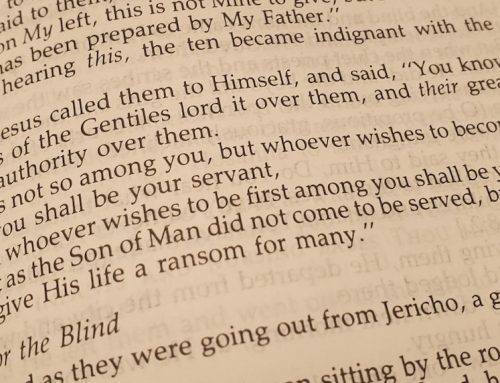One day a few years ago, I got a call from the adult son of a Stanton member. I’ll never forget how he described, point by point, his relationship with his mom. It was like he was describing my relationship with my mom. Personalities were very similar, after decades in the sect. Stories of dysfunction in family gatherings were eerily similar. And yet, I’d never met his mom (or if I did, I was a young child).
This is not a random coincidence. It is because Stanton is a petri dish for bad relationships, spurred on by “counsel” from the ruling rabbis (teachers) instructing their students in how to live life. They have built a culture that destroys families even when the family is intact and still in the sect. But for those families with one half in, and one half out, the new normal becomes even more dysfunctional.
Below is the most common roadmap Stanton members take from normal family relationships to extreme dysfunction. Some people in the church will follow this path to greater extremes than others due to differences in personality (either on the part of the ruling “rabbi” or the member under his/her authority). Some will take an off-ramp sooner than others and get out of the toxicity. More often than not, a spouse will get out first, and then the real dysfunction starts. But nearly everyone experiences some measure these things.
1. Teacher worship (man-pleasing). The path toward dysfunctional relationships always starts with teacher worship, or man-pleasing. Teachers demand that a member’s relationship with the church be placed above their relationship with friends, spouses, mothers, fathers, or siblings. The resulting culture eventually destroys relationship with those who are not members by setting up loyalty tests for the member. A wife can demonstrate her loyalty to the church by choosing her teacher’s “counsel” over family time, or honoring advice from a teacher not to take that family vacation her husband wants to take. A young man may want to play football for a major university, and he’s forced to choose between practice and an increasing load of church functions. No matter what the test is, every decision in life on practically every day of the week involves a choice between the teacher and the family.
2. Lack of empathy. These loyalty tests wear down a member’s sensitivity to others’ feelings and perceptions of what’s really happening. The relationship becomes distorted and viewed only through the member’s eyes, and the member starts blame shifting any resulting dysfunction onto the non-member. One of the primary ways this happens is by reducing empathy for non-members. Empathy is one of the most important relationship skills God gives us, but it is virtually non-existent in the higher-ups in the sect. Empathy for members is incentivized, but empathy for non-members is disincentivized by a combination of praise and rebuke to keep people in line.
3. Narcism. In the worst cases, relationships become borderline or extremely narcissistic. When it’s gone this far, it is very difficult to reach the narcissist, because they have been entirely desensitized to how you might feel if the roles were reversed. It may still be possible to have a relationship with this person, but it may not ever be a normal, healthy relationship. You will have to set firm boundaries for you and your family, and the narcissist won’t understand your point of view at all. To them, you should be interested in the story of every single person they know in the sect—but won’t care a dime about anyone you know that they don’t know.
These observations are just offered as insight to help people navigate their Stanton relationships. I hope I don’t discourage anyone from investing in a relationship with someone still in Stanton. Obviously, you need to be in a strong enough place that that person won’t bring you down. But if you are—and I pray that you are, or will be soon—then you can reach them, one loving action at a time.
Some people mistake a theology of love to be a theology of weakness. That’s not it at all. Yes, I do believe I’m obligated to do and say everything out of love. But sometimes love demands that I say some hard things that someone doesn’t necessarily want to hear. The key thing is that it is said with pure intent—to help that person grow and understand God in a better light. That’s called leadership. Saying something out of anger or frustration just doesn’t solve anything.







You said “Empathy is one of the most important relationship skills God gives us, but it is virtually non-existent in the higher-ups in the sect. Empathy for members is incentivized, and… non-members is disincentivized…” Whoa. There’s a whole lot in there. I could sit here for days and think about all the times I lacked compassion for those outside of Merie’s church, especially my family and closest friends. I had no problem not showing up or doing things with them when their hopes were that I or our family would take part in certain things. And on top of that,… Read more »